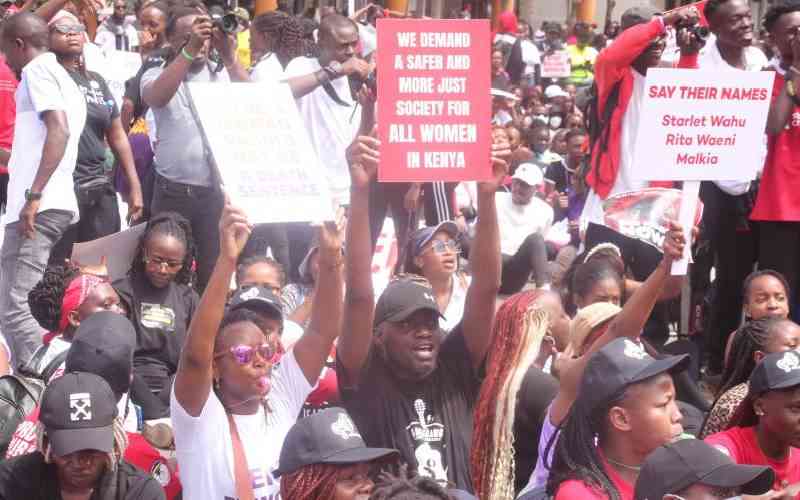×
The Standard e-Paper
Fearless, Trusted News

The rising cases of femicide have raised concerns about the safety of women in Kenya. In a patriarchal society, women are in charge of their own security.
As is expected of Kenya, everyone has become an expert on the issue, with many people giving unsolicited advice about what women "should do" or what the victims "should have done" to prevent their deaths.